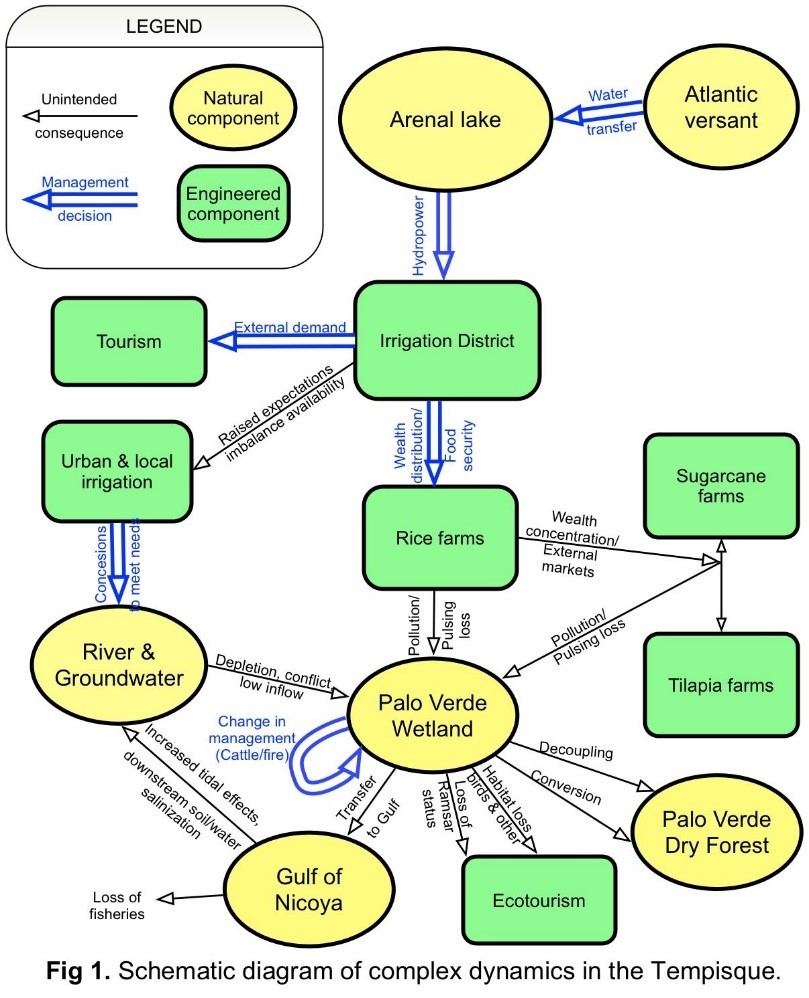Water Institute Graduate Fellows Program: 2017 Cohort
INDUCING RESILIENCE FOR WATER-SUBSIDIZED SYSTEMS
Six highly motivated doctoral-degree students began working collaboratively in fall 2017 within this interdisciplinary team of student Fellows and their faculty advisors. The focus project takes a comprehensive systems approach to analysis of interbasin transfer of surface water into the Tempisque River watershed in Costa Rica. This water transfer has altered hydrology, land use, economic structure, and health of the downstream Palo Verde wetland in the Tempisque watershed (Figure 1).
The student’s dissertation research will collectively contribute to identifying strategies to achieve watershed resilience by addressing hydrology, ecology and climate as well as social, cultural and legal aspects of the system. Examples of individual research questions include:
- What are key factors determining resilience of the watershed?
- How do climate fluctuations affect watershed resilience?
- How should ecological health be included in determining watershed resilience?
- What policies (restrictions and incentives) can be put in place to induce watershed resilience?
- How do political, social, cultural and legal contexts influence the policy framework for inducing watershed resilience?
- How should a watershed be comprehensively assessed to determine its resilience and hidden trade-offs?

Each student is developing a selected disciplinary expertise on the system while becoming well-rounded and knowledgeable in all other disciplinary aspects of the project.

The student Fellows and their faculty advisors meet as a group twice a month. In the summer of 2018 the team visited the Tempisque watershed in Costa Rica to gain hands-on experience of the issues. Students are taking interdisciplinary courses tailored to the cohort. Course topics include grant proposal writing, a policy and law field course, a doctoral research seminar on how experiments and models are used and challenged in policy making, a research design course in anthropology, and a course in network science that includes theory and methods related to social and ecological networks.
Outcomes: Up to date, the 2017 WIGF Cohort has obtained over $5 M in external funding via collective and individual research and travel grants.The cohort has established a strong working relationship with the Ramsar Regional Center for Training and Research for the Western Hemisphere (CREHO) headquartered in Panama. As a result in 2020 a collaborative agreement was signed between UF and CREHO. Four international webinars were co-sponsored between the Water Institute, UF Levin College of Law, UF Center for Latin American Studies, Florida Sea Grant, CREHO, and nine governmental and non-governmental institutions of Costa Rica and Panama. In response to a request from park managers and decision makers, a workshop to present the highlights of the cohort’s research and explore future collaborations was held in May 2021.

